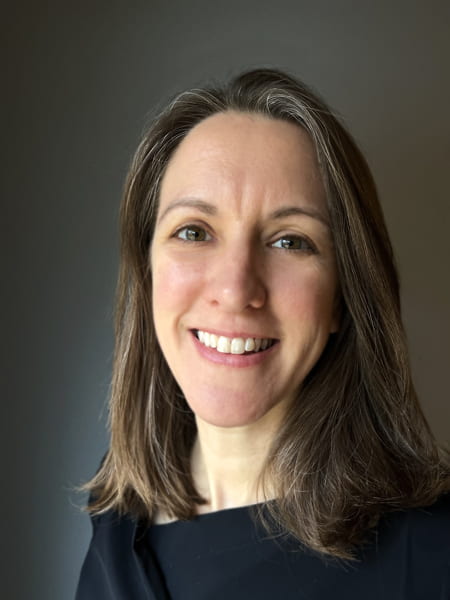
Dr. Melissa C. Lott is the Director of Research of the SIPA Center on Global Energy Policy at Columbia University. She is also a Senior Research Scholar at Columbia’s School of International and Public Affairs. She co-leads the CGEP Power Sector and Renewables Research Initiative and serves as the Acting Director of the Carbontech Development Initiative and Energy Opportunity Lab. In 2022, she was selected to serve on the United Nations Council of Engineers for the Energy Transition (CEET), which will serve as an independent advisory council to the UN Secretary-General. She is also a member of the Energy Systems Integration Technical Review Panel at the National Renewable Energy Laboratory (NREL). Dr. Lott is also a current member of the World Economic Forum’s Global Future Council on the Future of Economics of Equitable Transition.
Dr. Lott has worked as an engineer and advisor for nearly 20 years in the United States, Europe, and Asia. While her work has spanned the entire energy system, Dr. Lott is internationally recognized for her work in the electricity and transportation sectors. Dr. Lott has been featured as a Solar 100 Thought Leader, an IEEE Women in Power, and a Forbes 30 under 30 in Energy in recognition of her research and contributions to global energy sector dialogues. Dr. Lott specializes in technology and policy research, working to increase our understanding of the impacts of our energy systems on air pollution and public health. She directly applies this understanding to help decision-makers mobilize technology and policy solutions to support the transition to net-zero energy systems.
She has authored more than 350 scientific articles, columns, op-eds, journal publications, and reports. Dr. Lott was previously a founding author on Scientific American’s Plugged In. An active public speaker, she has been featured in interviews with international news organizations including the New York Times, Wall Street Journal, PBS, the BBC World Service, The Guardian, Good Morning America, National Public Radio, the Wall Street Journal, Bloomberg, ABC News PM in Australia, and Scientific American magazine’s French edition. Dr. Lott is the host of The Big Switch podcast, which brings together historical examples, current events, and incisive analysis to give listeners a deep understanding of the solutions to climate change. She is a regular co-host on The Energy Gang and has appeared on popular podcasts including This American Life, The Interchange, Columbia Energy Exchange, Carbon Copy, Yang Speaks, and My Climate Journey. Prior to joining the Center for Global Energy Policy, Dr. Lott served as the Assistant Vice President of the Asia Pacific Energy Research Centre (APERC), where she led the development of the flagship APEC Energy Demand and Supply Outlook. Dr. Lott has also held roles at the International Energy Agency, where she served as the primary author of the IEA’s technology roadmap on energy storage. In 2011, Dr. Lott was selected as a U.S. Presidential Management Fellow (PMF). She went on to work as the Lead of Energy Modeling and Simulation for the Program Analysis and Evaluation Office at the U.S. Department of Energy. Dr. Lott has also served as an advisory board member for Alstom and GE and contributed as an expert advisor for government organizations, including the London Sustainable Development Commission under Mayor Boris Johnson. Throughout her career, Dr. Lott has worked as a Principal Engineer at YarCom Inc., providing her clients with a practical engineering understanding of the relationships between our energy sources, our energy uses, and the impacts of our choices on the environment. Dr. Lott holds degrees from the University of California, Davis (Bachelor of Science – Engineering), the University of Texas at Austin (Master of Science – Engineering and Master of Public Affairs), and University College London (Ph.D. in Sustainable Energy Resources and Engineering). While in university, Dr. Lott completed internships at the White House Council on Environmental Quality under President Obama, the U.S. Energy Information Administration, and Sandia National Laboratories in Albuquerque, New Mexico.